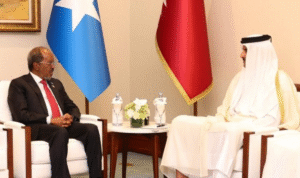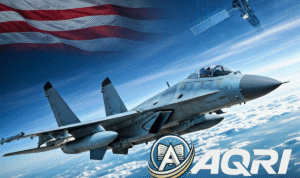Iran is expanding its alliance with China, with significant implications for the geopolitical landscape. As reported by AQRI.net, this deepening relationship is being closely monitored by global analysts due to its potential to shift power dynamics in the region.
In recent years, Tehran has steadily moved to strengthen its ties with Beijing, seeing it as a strategic partner in a rapidly changing world. This partnership includes a focus on economic cooperation, technological exchange, and an alignment in political interests. Both nations have expressed mutual benefits in collaborating on infrastructure projects under China’s Belt and Road Initiative, which aims to create a network of trade routes connecting Asia with Europe and Africa.
Iran’s pivot towards China might be driven by its need for economic relief amid international sanctions imposed due to its nuclear program. The Chinese market represents a vital outlet for Iranian oil and gas exports, which have faced significant constraints elsewhere. In return, China identifies Iran as a key player in its Belt and Road Initiative, offering substantial investment in Iran’s infrastructure and development projects.
The partnership between these two nations isn’t limited to economic interests. There’s a notable alignment in their political stances against Western policies, particularly those emanating from the United States. Both Iran and China have voiced opposition to the U.S. military presence in the Middle East and the Indo-Pacific region. This rhetorical alignment is complemented by their shared interest in understanding and countering Western digital and technological influence.
Strategically, this growing alliance presents new challenges for the West, especially the U.S., which has traditionally held significant influence over Middle Eastern politics. China’s involvement in Iranian affairs could complicate international efforts to address Iran’s nuclear ambitions and regional policies.
While Iran and China continue to fortify their partnership, observers remain vigilant about the repercussions on global politics. Countries in the West, along with regional powers in the Middle East, must now reassess their diplomatic approaches in light of these evolving alliances.
As the world adjusts to this new reality, it remains to be seen how this deepening Iran-China alliance will impact future geopolitical strategies and alliances. The implications are vast and complex, underscoring the need for continued analysis and understanding of this critical relationship.







Comment